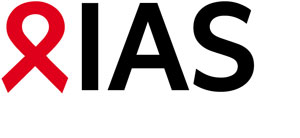 © Copyright 2022 – 2024 IAS – the International AIDS Society
© Copyright 2022 – 2024 IAS – the International AIDS Society
Contact us at [email protected]
AIDS 2022 will take place in Montreal, Canada, from 29 July to 2 August. Canada hosted the 5th International AIDS Conference in Montreal in 1989, the 11th International AIDS Conference in Vancouver in 1996 and the 16th International AIDS Conference in Toronto in 2006.
We sat down with Jean-Pierre Routy, the Local Co-Chair of AIDS 2022, to learn more about Canada’s response to HIV and his hopes for the conference.
It has been more than 40 years since AIDS was first reported. Looking back, what do you see as some of the most important milestones in the history of Canada’s HIV response? And what challenges remain?
Canada was a pioneer of needle exchange. It was one of the first countries to launch this harm reduction strategy in 1989, possibly fuelled by the 5th International AIDS Conference hosted in Montreal.
When it comes to global goals, we have been very successful in ensuring that people on treatment achieve viral suppression. But we need to ramp up to ensure that everyone with HIV is diagnosed early and provided with treatment.
And while prevalence remains low in Canada, incidence rates are concentrated among specific populations, particularly men who have sex with men, Indigenous people, Canadians of African and Caribbean origin and people who use drugs. The COVID-19 pandemic has exacerbated these disparities and underscored the need to address the drivers of inequity, including systemic racism.
What do you hope participants in AIDS 2022 learn from your colleagues and partners in Canada?
Canadians have learned many lessons from COVID-19 over the past year that can be shared with the world. After stealing the spotlight, it would be nice to see how much light COVID-19 sheds back on HIV, including greater study of vaccination and inflammation. Due to COVID-19 severity, the effect of ageing on the immune system is now being better studied than ever before; so we hope to learn from that.
We also hope to learn from other countries that have pushed progressive policy change to address HIV. We still have severe criminalization of HIV transmission in Canada. The responsibility to prevent transmission is only on the person living with HIV, not on the partner. In other countries, if it is a consensual sex act, you have to protect yourself as you don’t know the HIV status of the new partner. We hope to change the criminalization law in Canada.
Also, in some provinces, HIV medications are free. In British Columbia, if you have a salary, you have to pay $92 a month for your medications. If you have a low salary, $92 a month is considerable. Ideally, medications, including PrEP, would be free in all provinces.
That’s part of why we’re excited to once again see Canada host the International AIDS Conference. It shows commitment to an economic and political agenda in seeking to end the HIV epidemic. We hope that the Prime Minister will join us in pursuing these changes and hope to hear some announcements from the Federal government during the conference on what it is doing to address HIV in Canada and globally.
The theme of AIDS 2022 is re-engage and follow the science. What does this theme mean to you? And what are your biggest hopes for the conference?
It means a lot as I contributed to the selection of the theme. We chose “re-engage” because COVID-19 has overshadowed HIV. We must push for people and the government to recognize that we have two pandemics and that, unlike COVID-19, HIV is around for life.
And we chose “follow the science” because true scientific evidence, not political agendas, should guide political and medical interventions. We know that fake news exists and it’s still difficult to have good scientific communication. You know, in some countries with right-wing policies against abortion and generally against LGBTQ people, we also see restrictive HIV policies. Progress still holds a fragile status worldwide. We want decisions to be based on true scientific data and not prejudged on political agendas.
I look forward to welcoming delegates to AIDS 2022, both in person and virtually, so that we can chart research agendas, shift the latest evidence to action and recommit to overcoming HIV as a threat to public health and individual well-being.
Dr Routy is an attending physician in the Division of Hematology and Director of Chronic Viral Illness Service at the McGill University Health Centre in Montreal. His work in AIDS-related malignancies earned him the McGill University Louis Lowenstein Chair in Hematology & Oncology.

“Canadians have learned many lessons from COVID-19 over the past year that can be shared with the world. After stealing the spotlight, it would be nice to see how much light COVID-19 sheds back on HIV.” – Jean-Pierre Routy, AIDS 2022 Local Co-Chair.




